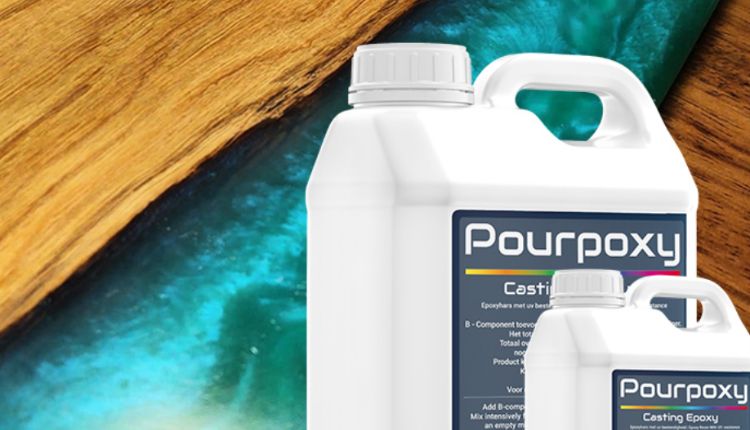Epoxy resins have been a popular choice for casting and coating applications for decades. However, the environmental impact of traditional casting epoxy resins has become a growing concern in recent years. These resins are made from petroleum-based chemicals and release harmful volatile organic compounds (VOCs) during the curing process. Fortunately, there are now eco-friendly alternatives to traditional epoxy resins that offer comparable performance without the negative environmental impact.
One of the most promising eco-friendly alternatives to traditional epoxy resins is bio-based epoxy resin. Bio-based epoxy resin is made from renewable resources such as soybeans, corn, and other plant-based materials. These resins are biodegradable and emit fewer VOCs during the curing process than traditional epoxy resins. Bio-based epoxy resins also offer comparable strength and durability to traditional epoxy resins, making them an excellent choice for casting applications.
Another eco-friendly alternative to traditional epoxy resins is water-based epoxy resin. Water-based epoxy resin is made from water-soluble polymers that do not emit harmful VOCs during the curing process. These resins are also non-toxic and can be easily cleaned up with soap and water. Water-based epoxy resin is an excellent choice for casting applications where VOC emissions are a concern, such as in enclosed spaces or areas with poor ventilation.
In addition to bio-based and water-based epoxy resins, there are also eco-friendly alternatives to traditional hardeners and additives used in epoxy resin formulations. For example, some manufacturers now offer hardeners made from plant-based materials such as cashew nut shell liquid (CNSL). CNSL is a byproduct of the cashew nut industry and can be used as a sustainable alternative to petroleum-based hardeners.
Another eco-friendly additive used in some epoxy resin formulations is recycled glass powder. Recycled glass powder is made from post-consumer glass waste and can be added to epoxy resin to improve its strength and durability. Using recycled glass powder in place of traditional fillers such as silica or talc reduces waste and helps to conserve natural resources.
The resin component of traditional epoxy resins is typically a liquid that is made up of long chains of molecules called polymers. These polymers are usually derived from petroleum or plant-based sources. The hardener component is typically a liquid or powder that contains a chemical called an amine. When the resin and hardener are mixed together, the amine reacts with the polymer chains in the resin to form a cross-linked network of molecules.
One of the advantages of traditional epoxy resins is their versatility. They can be used for a wide range of casting applications, including jewelry making, sculpture, and industrial parts production. They can also be used to create molds for casting other materials such as concrete or plaster.
Another advantage of traditional epoxy resins is their strength and durability. Once cured, they are resistant to water, chemicals, and UV radiation. This makes them ideal for use in outdoor applications where exposure to the elements is a concern.
However, there are also some disadvantages to using traditional epoxy resins for casting. One of the main drawbacks is their tendency to yellow over time when exposed to sunlight. This can be particularly problematic for applications where color stability is important.
Another potential issue with traditional epoxy resins is their sensitivity to temperature and humidity. If the temperature or humidity levels are too high during the curing process, it can cause the resin to cure too quickly or not at all. This can result in a weaker final product or even complete failure.
To overcome these issues, manufacturers have developed new types of epoxy resins that offer improved performance and stability. For example, some modern epoxy resins contain additives that help prevent yellowing over time. Others have been formulated to cure at lower temperatures or in higher humidity environments.
Despite these advancements, traditional epoxy resins remain popular for casting due to their versatility and strength. They continue to be used by artists, craftsmen, and industrial manufacturers around the world
While eco-friendly alternatives to traditional epoxy resins offer many benefits, it is important to note that they may not be suitable for all applications. For example, bio-based epoxy resin may not be as heat-resistant as traditional epoxy resin, making it unsuitable for high-temperature applications. Similarly, water-based epoxy resin may not offer the same level of chemical resistance as traditional epoxy resin, making it unsuitable for certain industrial applications.
In conclusion, eco-friendly alternatives to traditional epoxy resins offer a sustainable solution for casting applications without sacrificing performance or durability. Bio-based and water-based epoxy resins emit fewer VOCs during the curing process than traditional epoxy resins while offering comparable strength and durability. Hardener alternatives such as CNSL and additive alternatives such as recycled glass powder further reduce the environmental impact of these materials. While these eco-friendly alternatives may not be suitable for all applications, they represent an important step towards reducing the environmental impact of casting materials.
